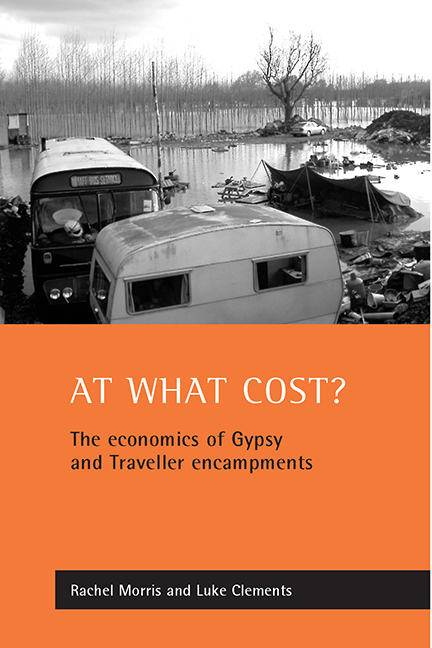Book contents
- Frontmatter
- Contents
- List of tables
- Preface
- Acknowledgements
- List of acronyms
- Dedication
- one Introduction
- two Past and present law
- three The costs to local authorities
- four The costs to others
- five Best Value
- six Rights, race relations and Best Value
- seven Conclusion: obstacles and opportunities
- References
- Appendices
- Index
- Also available from The Policy Press
seven - Conclusion: obstacles and opportunities
Published online by Cambridge University Press: 20 January 2022
- Frontmatter
- Contents
- List of tables
- Preface
- Acknowledgements
- List of acronyms
- Dedication
- one Introduction
- two Past and present law
- three The costs to local authorities
- four The costs to others
- five Best Value
- six Rights, race relations and Best Value
- seven Conclusion: obstacles and opportunities
- References
- Appendices
- Index
- Also available from The Policy Press
Summary
It is worse than useless and unavailing to harass them from place to place when no retreat or shelter is provided. (Hoyland, 1816, p 161)
In 1992 the government proposed major reforms in the law relating to accommodation for Travelling People, implemented in 1994. The Labour government has retained the regime since coming into power in 1997; although a major review of housing law was commenced in 2000, no changes to policy relating to accommodation for Travelling People appear imminent.
A primary motive given for the 1994 reforms was financial: that the cost to the public purse of providing sites for Travelling People was unjustifiably high. Yet no study has ever looked into the costs of not providing sites. The availability and appropriateness of lawful stopping places is directly linked to the costs of ‘unauthorised encampments’, which costs have long been a matter of concern to a wide range of public and private organisations. A 1998 pilot survey by the Traveller Law Research Unit (TLRU) at Cardiff Law School indicated that the costs of non-provision might be at least as substantial as those of provision.
This book presents the findings of a subsequent and more comprehensive study by the TLRU of costs associated with unauthorised encampments. In addition to an exploration of financial costs experienced by UK local authorities, as landowners and providers of public services, it also examines financial, human and social costs suffered by private landowners and other settled people, police services and Travelling People themselves. The costs are placed in context by exploring both the 1992 process of legal change in this field, and obligations now placed on public bodies by ‘Best Value’ and other new laws.
Issues around and approaches to the costs of unauthorised encampments are perceptibly varied and complex, raising difficult and sometimes emotive questions. There has been no public debate on the costs of site provision compared to those of non-provision, and even less research. While concern about costs by local authorities is widespread, the reliable data available from authorities is patchy. It is evident that some public bodies would prefer this information not to be explicit, in order that they can continue to deal with encampments in an informal fashion; the issue being a political ‘hot potato’.
- Type
- Chapter
- Information
- At What Cost?The Economics of Gypsy and Traveller Encampments, pp. 101 - 104Publisher: Bristol University PressPrint publication year: 2002



